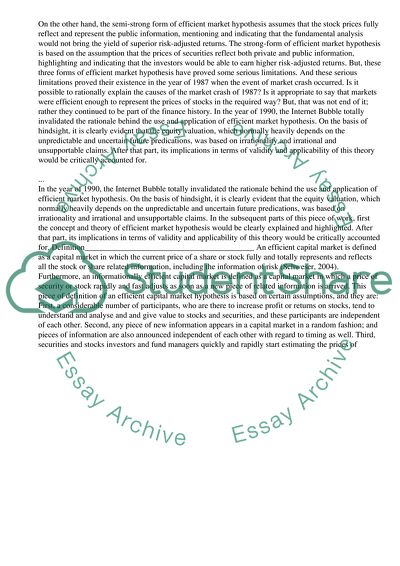Cite this document
(“Efficient Market Hypothesis Essay Example | Topics and Well Written Essays - 1750 words”, n.d.)
Retrieved from https://studentshare.org/management/1410385-efficient-market-hypothesis
Retrieved from https://studentshare.org/management/1410385-efficient-market-hypothesis
(Efficient Market Hypothesis Essay Example | Topics and Well Written Essays - 1750 Words)
https://studentshare.org/management/1410385-efficient-market-hypothesis.
https://studentshare.org/management/1410385-efficient-market-hypothesis.
“Efficient Market Hypothesis Essay Example | Topics and Well Written Essays - 1750 Words”, n.d. https://studentshare.org/management/1410385-efficient-market-hypothesis.


